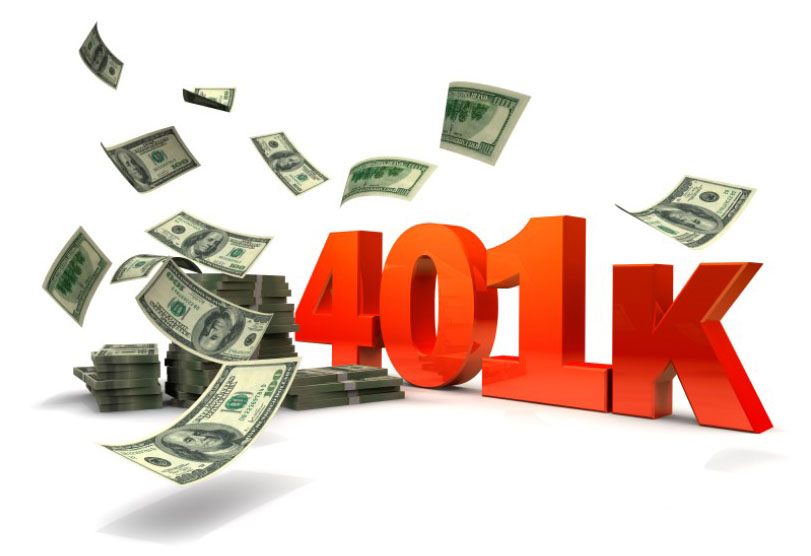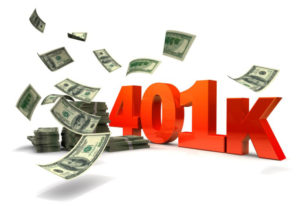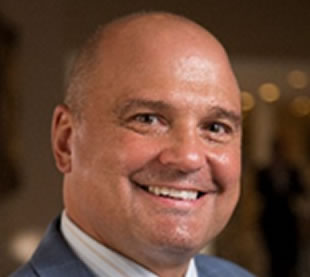
How Tax Reform Impacts Your Traditional 401(k) Or Roth 401(k) Decision
 The recently-passed Tax Cut and Jobs Act of 2017 challenges us to reconsider how we save for retirement. Saving for retirement is smart. This is especially true when you work for a company that matches your contribution into your retirement account. The Tax Act doesn’t change that, but it may impact which type of account you decide to use: a Traditional 401(k) or a Roth 401(k).
The recently-passed Tax Cut and Jobs Act of 2017 challenges us to reconsider how we save for retirement. Saving for retirement is smart. This is especially true when you work for a company that matches your contribution into your retirement account. The Tax Act doesn’t change that, but it may impact which type of account you decide to use: a Traditional 401(k) or a Roth 401(k).
For many Americans, this new tax law may make a Roth 401(k) or a Roth IRA even more beneficial relative to a traditional 401(k) or IRA. Here are several reasons:
- Many Americans continue to be in a zero-percent tax bracket and even more have been moved to a lower tax bracket. If you fall into one of these groups, then you may want to consider a Roth account instead of a traditional 401(k) or IRA. The logic is simple: If you earn a low income, then you have zero-to-little benefit from the initial tax deduction of a traditional 401(k) or IRA; therefore, it’s to your benefit to instead contribute on an after-tax basis to a Roth account and let your money accumulate tax-free. Of course, workers who are in lower tax brackets may struggle to find the money to save for retirement; but if you are able to save even a few dollars each pay period, it may make more sense to use after-tax dollars invested into a Roth.
- Those who expect to have their earnings increase in the future should also consider the Roth alternative. Due to the new tax structure, many people, including those who are solidly in the middle class, are paying less in federal income taxes. Therefore, paying taxes now at the new, lower rate and letting your after-tax retirement contributions grow, potentially tax-free, inside a Roth IRA may be especially savvy if you retire at a higher tax rate. For example, young professionals in their 30s can benefit from decades of compound growth inside a Roth account, and from tax-free withdrawals 30 or 40 years down the road when they may be in a higher tax bracket. After all, why penalize yourself by paying a higher tax rate later on a potentially much larger amount of money in retirement, compared to paying a lower tax rate on a smaller contribution amount now?
- Perhaps surprisingly, older, wealthier Boomers may also want to consider the Roth 401(k) option (typically wealthier Boomers are not eligible for Roth IRA contributions, but they are eligible for a Roth 401(k), if their employer offers that option). While the traditional 401(k) provides a tax deduction now and tax deferral on growth inside your account, this becomes less attractive when you do not expect a decline in your tax rates during your retirement. When retirement withdrawals are only a few years away, the value of the tax deferral on your growth inside the traditional account is relatively small. In addition when your money is withdrawn from a 401(k), everything is taxed at punitive ordinary-income-tax rates. So if you don’t expect a decline in your tax rate in retirement, and if your retirement is only a few years away, consider the Roth alternative. Sure, when you forego the immediate tax deduction and use the Roth 401(k) the tax bite now will sting, but at least you are only paying ordinary income taxes once and only on your contributions now—not ordinary income taxes on your initial contribution and on all your growth later.
- Finally, if the federal deficit continues to grow (this Tax Act has been widely criticized for adding to the already sizable deficit), ordinary-income-tax rates may need to rise in the future in order to close the budget gap. With Americans increasingly living longer while being unable to save for their future, the need for government support programs may also increase; those programs will need to be paid for with higher taxes. If you believe that tax rates—or more specifically, your tax rate—will be higher at some point in the future, then the decision to go Roth may be attractive for you.
The “traditional versus Roth” decision is complex with no one-size-fits-all solution. As with all investments, there are many tradeoffs and considerations. With this new tax legislation, now is a good time to reconsider how you invest your hard earned retirement savings.



Engage us on Facebook
Follow us on Twitter
Tweets by @mymcmedia